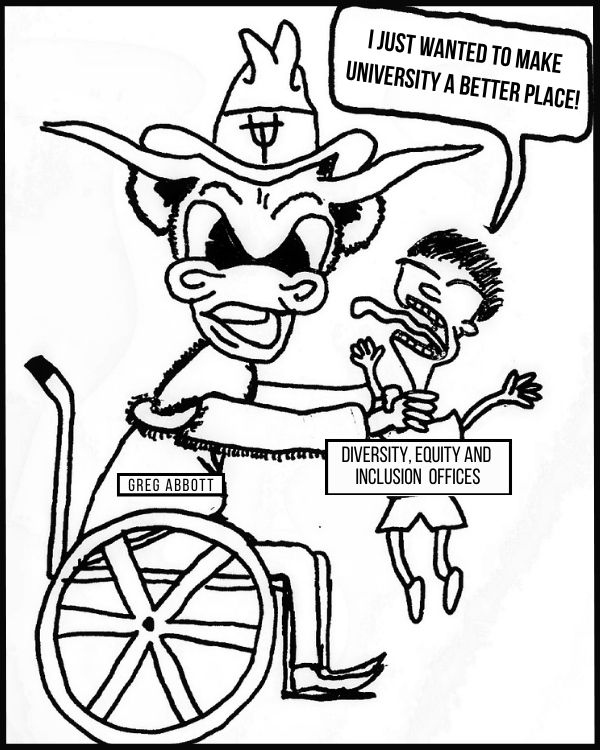As the Texas race for governor picks up speed, The Dream Act has become a hot-button issue that many candidates have scrambled to take a stance on.
The runaway favorite on the GOP primary ballot in the race for governor, Attorney General Greg Abbott, maintained a largely muted approach until last Thursday, when Abbotts’s campaign released a written statement that broke its silence on the issue.
According to the Texas Tribune, Abbott spokesman Matt Hirsch said Abbott believes the goal of the law is laudable but needs revamping.
“Greg Abbott believes that the objective of the program is noble,” Hirsch said. “But, he believes the law as structured is flawed and it must be reformed.” Hirsch declined to elaborate but said Abbott would unveil specific policy initiatives on the tuition law and other major issues in coming months.
This reluctant approach taken by the Abbott campaign is indicative a growing trend amongst Texas Republicans in the wake of a growing push to turn Texas blue.
The 2001 Texas Dream Act gives in-state college tuition rates to young undocumented immigrants living in Texas. This type of legislation often draws fire from Tea Party activists who historically oppose any benefits being extended to illegal immigrants.
Separate from the state Dream Act is the national Development, Relief and Education for Alien Minors (DREAM) Act, which has seen many revisions since its original introduction to Congress in 2001. The law is currently still in legislative limbo, but would essentially serve to provide immigrant children who graduated from U.S. high schools the opportunity to receive U.S. citizenship. The DREAM Act is designed to grant amnesty to those who arrived in the United States as children before the age of 16 and who have been residing in the U.S. continuously for at least five years prior to the bill being enacted into law.
While Republicans feel compelled to maintain their extended courtship with the Tea Party there is a growing rift in the conservative ideologue that stems from the recent push for Texas Republicans to capture the votes of the growing Hispanic population in the state.
Jim Henson, a Texas Tribune pollster and the director of the Texas Politics Project at the University of Texas at Austin, stated, “(Republicans) have their eye on the increasing Latino vote, but their primary voting base is not taking the same view.”
Polls conducted by Henson have illustrated this point, as Republicans who identify with the Tea Party are shown to oppose discounted in-state tuition for undocumented immigrants by a margin of 76 percent to 16 percent; Hispanics favor it 55-33.
According to the PewResearch Hispanic Trends Project, some 26 percent of Texas eligible voters are Hispanic, the second largest Hispanic eligible voter share nationally. Also, 44 percent of Hispanics in Texas are eligible to vote, ranking Texas 17th nationwide in the share of the Hispanic population that is eligible to vote. By contrast, 78 percent of the state’s white population is eligible to vote.
Demographic shifts and the resulting political sidestepping Republicans like Abbott have taken to serve only the candidate’s polling results and foster diluted statements that favor ambiguity rather than substance.
This same issue poses less controversy among Democrats, whom largely support legislation of this kind. Democratic candidate for governor Sen. Wendy Davis illustrates this point in her clear support of the Dream Act.
“Sen. Davis supports the DREAM Act as written and passed by the bipartisan Texas Legislature. She believes that expanding access to quality education in our Texas colleges and universities will secure our state’s future, help create high-skill, high-wage jobs and make Texas even stronger,” said Davis spokesman Bo Delp. “All Texans should have an opportunity to contribute to our growing economy, including children who were brought here through no fault of their own.”
This statement oddly enough seems to echo the previous statements from Republican Gov. Rick Perry, who signed the Texas Dream Act into law in 2001.
“If you say that we should not educate children who have come into our state for no other reason than they’ve been brought there by no fault of their own, I don’t think you have a heart,” Gov. Perry said in a nationally televised debate in September 2011.
Perry subsequently faced fallout from his support of this law as the Tea Party has maintained more and more hardened views on immigrants in the state.
This fear that governs candidates searching for the broadest possible appeal that has pervaded the state’s political discourse serves as an unfortunate disservice to the voter searching for substantive and informative arguments.
The fact that a law that simply makes higher learning more accessible for illegal immigrants is so controversial goes to show that the issues are being transposed into a an ideological discussion about candidate allegiances and have warped the intent and purpose of individual legislation into a diluted and ultimately meaningless sound bite.

















